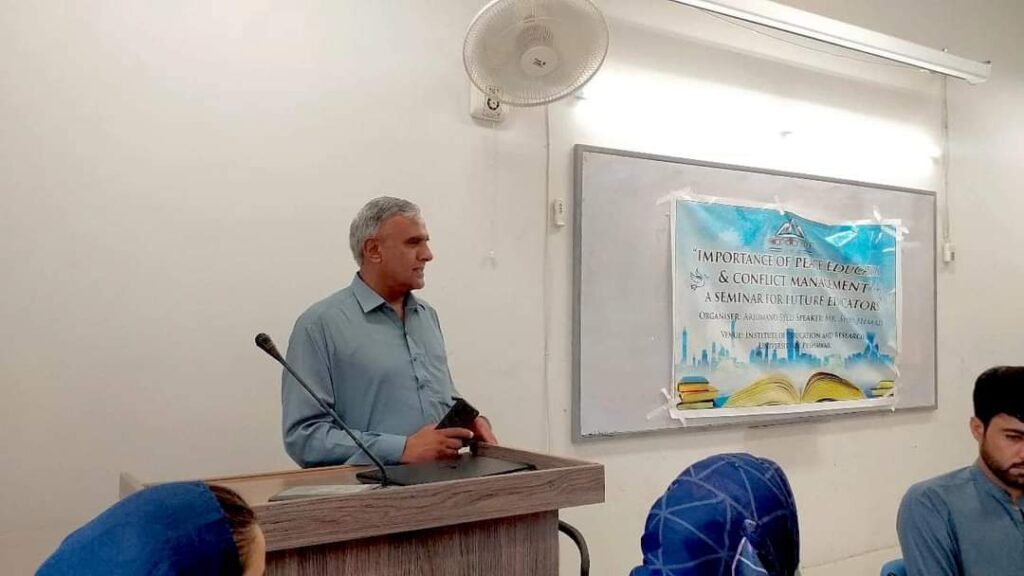In the hallowed halls of the Institute of Education and Research at the University of Peshawar, the Intellectuals Forum convened for a thought-provoking session on the importance of peace education and conflict management. Shafiq Ahmad, a seasoned educator and advocate for peace, led the discussion, shedding light on the pivotal role of education in fostering harmony and resolving conflicts.
In a world marked by strife and division, the need for peace education has never been more urgent. As Shafiq Ahmad eloquently articulated, education serves as a powerful tool for promoting understanding, empathy, and tolerance among individuals and communities. By equipping students with the knowledge and skills to navigate conflicts peacefully, education lays the groundwork for a more just and equitable society.

Throughout the session, Shafiq Ahmad drew upon his wealth of experience in the field of education, sharing insights gleaned from years of working with students and educators in diverse settings. He emphasized the importance of cultivating critical thinking and dialogue skills, enabling individuals to engage constructively with differing perspectives and resolve conflicts through peaceful means.
One of the central themes of the discussion was the role of educators as agents of change in promoting peace and reconciliation. Shafiq Ahmad underscored the profound impact that teachers and educational institutions can have in shaping attitudes and behaviors, instilling values of tolerance and respect for diversity from an early age.

As participants engaged in lively discourse, exchanging ideas and experiences, a consensus emerged on the transformative potential of peace education. From the classroom to the community, education emerges as a catalyst for social change, empowering individuals to become active agents of peace in their respective spheres of influence.
At the Institute of Education and Research, amidst the scholarly ambiance and intellectual fervor, the session served as a rallying cry for a more peaceful and inclusive world. Shafiq Ahmad’s impassioned plea for peace education resonated deeply with attendees, inspiring them to redouble their efforts in promoting dialogue, understanding, and reconciliation.

As the session drew to a close, the Intellectuals Forum departed with a renewed commitment to advancing the cause of peace through education. Armed with Shafiq Ahmad’s insights and guidance, they pledged to continue their advocacy efforts, striving to create a more harmonious and compassionate society for future generations to inherit.



